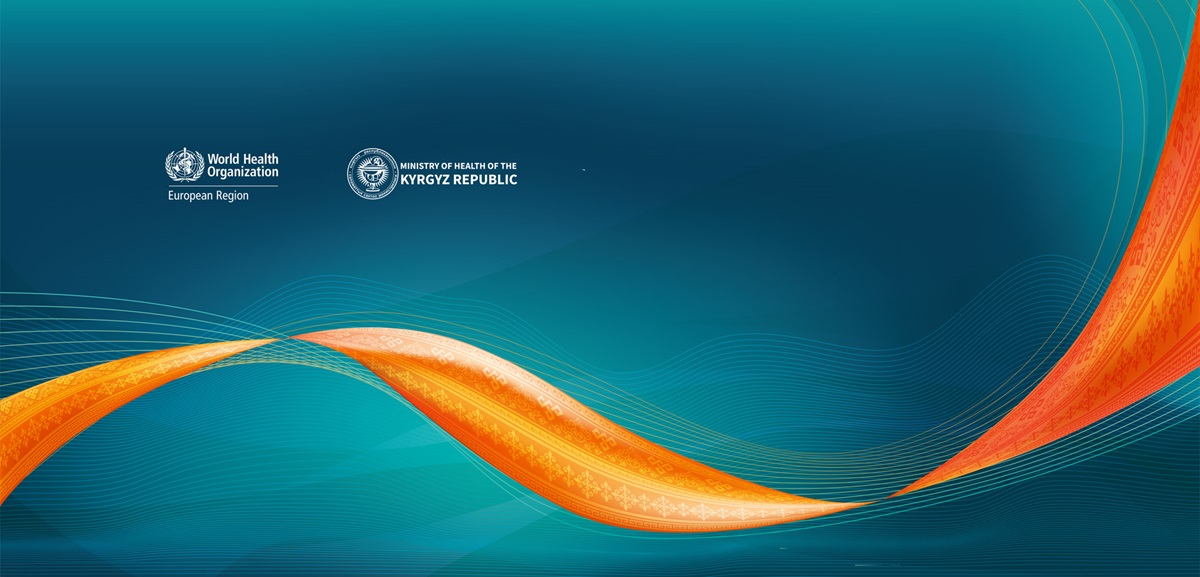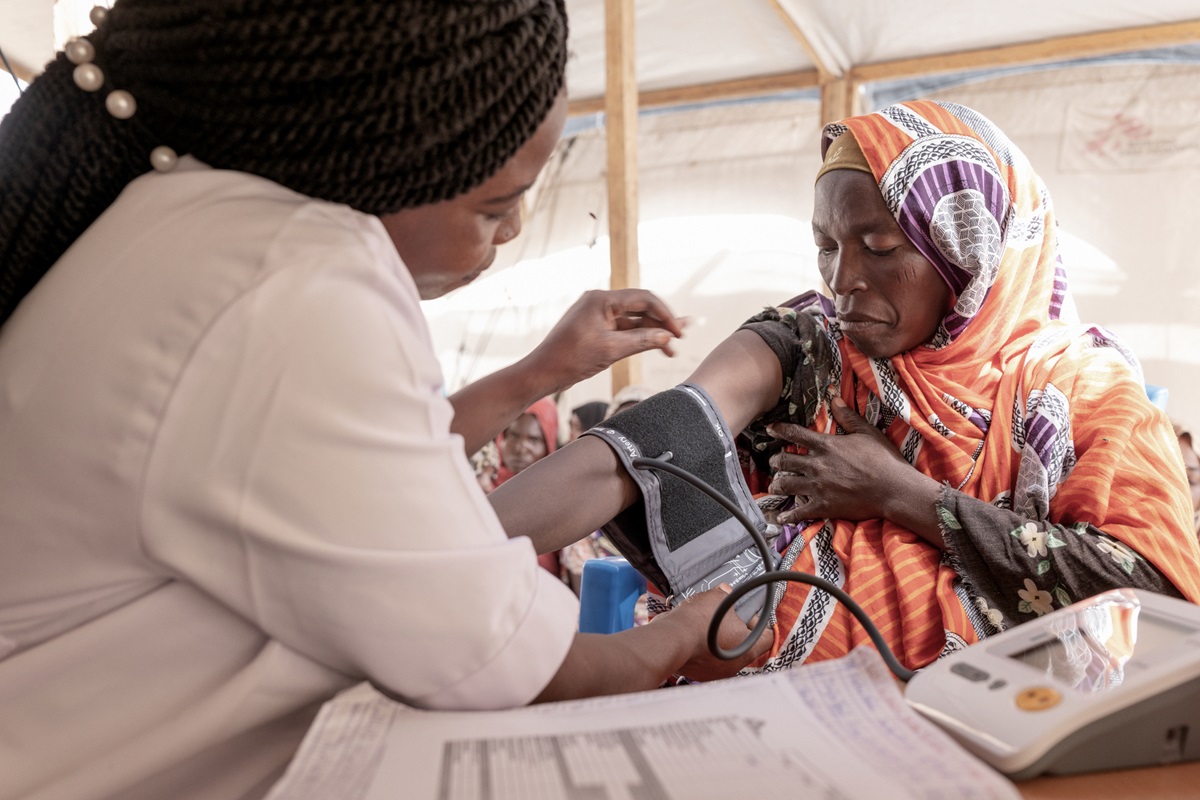Migration and health news from around the WHO European Region
No images? Click here
Migration and health news from around the WHO European Region.

Migration and Health Newsletter
September 2024

Central Asia International Health Investment Forum highlights Migrants' and Refugees' Health
26–27 June 2024 - Bishkek, Kyrgyzstan
The WHO Regional Office for Europe, in partnership with Kyrgyzstan’s Ministry of Health, held the first Central Asia International Health Investment Forum on 26–27 June 2024 in Bishkek. Over 200 participants, including officials from five Central Asian countries, gathered to discuss regional health challenges and the need for stronger partnerships and investments. A significant focus was on improving health care for vulnerable groups, including migrants and refugees, who often face greater barriers to accessing essential services. Labor migrants remain at high risk due to limited health care access compared to host country citizens. The forum emphasized the need for countries to integrate various services into primary health care and to strengthen regional and national cooperation. A multisectoral approach, involving international organizations, civil society, and other key stakeholders, is crucial to ensuring the health of migrants, refugees, and other vulnerable populations, especially in tackling TB, HIV, and viral hepatitis.
Find out more here.

New WHO E-Learning Course Empowers Health Workers to Support Refugees and Migrants
2 September 2024 - Global
WHO Health and Migration has launched an innovative e-learning course aimed at equipping healthcare workers with essential skills for delivering inclusive care to refugees and migrants. Titled Global Competency Standards for the Provision of Health Services to Refugees and Migrants, the OpenWHO course focuses on developing cultural competency, improving communication, and fostering interdisciplinary collaboration. This six-module program includes engaging materials like videos, case studies, and quizzes, allowing participants to acquire practical, real-world skills. Free, flexible and accessible, the course takes approximately six hours to complete, giving health professionals the opportunity to learn at their own pace.
Graduates will earn a Certificate of Achievement and an Open Badge, signifying their commitment to enhancing health services for migrant and refugee populations. This initiative is part of WHO’s global strategy to strengthen healthcare delivery and create equitable healthcare systems for all.
Enroll today!
Watch introduction video.
Learn more about the initiative.

The Second Global Network Meeting on Health of Refugees and Migrants
16-18 September 2024 - Cairo, Egypt
The Health and Migration team at WHO headquarters, under the hospitality of the WHO Regional Office for the Eastern Mediterranean, hosted the Second Global Network Meeting on the Health of Refugees and Migrants, in Cairo, Egypt. Building on the outcomes of the first meeting in Geneva (March 2023), this event aimed to foster collaboration and address health challenges facing refugees, migrants, and displaced populations in the region and globally. This hybrid event brought together WHO colleagues from headquarters, regional, and country offices to reflect on strategic priorities, streamline collaboration within WHO departments to support Health and Migration, optimize country-level impact, and exchange knowledge through case studies and regional experiences.
Learn about WHO Health and Migration work here.

Refugee and Migrant Health: Global Competency Standards Training for Health Workers
Ongoing - Global
In February 2024, Nigeria hosted the first capacity-building sessions on the Global Competency Standards for health workers, including a one-day orientation for policymakers and health managers, and a three-day training for primary healthcare personnel. Nigeria plans to develop a nationally tailored competency standard curriculum. This model was also implemented in Senegal, Niger, and Mali in June and July 2024. Another training session was organized in September 2024 in Riga, Latvia, where health mediators focused on improving service navigation for displaced people from Ukraine. Presented at the 2024 World Health Summit regional meeting in Melbourne, these standards set the benchmark for the health workforce in providing equitable care to refugees and migrants.


EU4Health project: Training for mediators on WHO global competency standards for refugee and migrant health to support the health needs of refugees from Ukraine
24 - 26 September 2024 - Riga, Latvia
WHO facilitated a 2.5-day training for cultural and health mediators and navigators on the WHO global competency standards for refugee and migrant health. In the framework of the joint EU4Health project between WHO, IOM and the EU, the two UN agencies have deployed cultural and health mediators and navigators in countries to support refugees and displaced people from Ukraine in navigating the health system in the host country. The mediators and navigators attending the training are currently deployed in Bulgaria, Estonia, Latvia, Lithuania, Republic of Moldova, Poland, and Romania. The training aims to build the capacity of the attendees to promote the provision of culturally sensitive health care to refugees and migrants, in moving towards achieving universal health coverage for all populations and leave no refugees and migrants behind.
Enroll in the online version of the course here.

UNGA79 Side Event: Addressing AMR Challenges Including in Migrant and Refugee Populations
26 September 2024 - United Nations Headquarters, New York, USA
The Arab Republic of Egypt, the Kingdom of Saudi Arabia and WHO’s Health and Migration hosted a side event at the 79th UN General Assembly addressing the global threat of antimicrobial resistance (AMR) including among refugees and migrants. Building on the findings from the fourth Report of the WHO Global Evidence Review on Health and Migration, “Capturing the evidence on access to essential antibiotics in refugee and migrant populations.”, the event aimed to mobilize political commitment to combat AMR by promoting equitable healthcare policies. Governments, UN agencies, and private sector representatives discussed best practices and innovative solutions, fostering collaboration to tackle AMR in low- and middle-income countries and develop tailored strategies for prevention, diagnosis, and treatment.
This event was co-sponsored by Brazil, France, Greece, Indonesia, Italy, Luxembourg, Malta, Nigeria, Oman, Portugal, Qatar, Slovakia, Sweden, United Arab Emirates, IOM, UNHCR.
Visit the event webpage.
Watch the live stream recording here.

Colombia to host WHO's Fifth Global School on Refugee and Migrant Health
2-6 December 2024 - Colombia, to be livestreamed globally.
The WHO Department of Health and Migration is pleased to announce the Fifth edition of the Global School on Refugee and Migrant Health, scheduled for 2-6 December 2024, in Bogota, Colombia.
This WHO initiative offers a pivotal opportunity to bring together experts, stakeholders, and policymakers. The Global School serves as a platform to explore innovative approaches, share best practices, and forge partnerships in addressing the complex health challenges faced by migrant populations worldwide. Through robust knowledge sharing and the leveraging of collective experiences, this flagship course aims to enhance the health and well-being of migrant populations.
The event will be conducted as an online synchronous learning experience, comprising five 90-minute modules delivered over five consecutive days. Each module will focus on key sub-thematic areas of Universal Health Coverage (UHC) for refugees and migrants.
For registration and more information: Visit the event webpage
Learn more: Watch the overview video.






